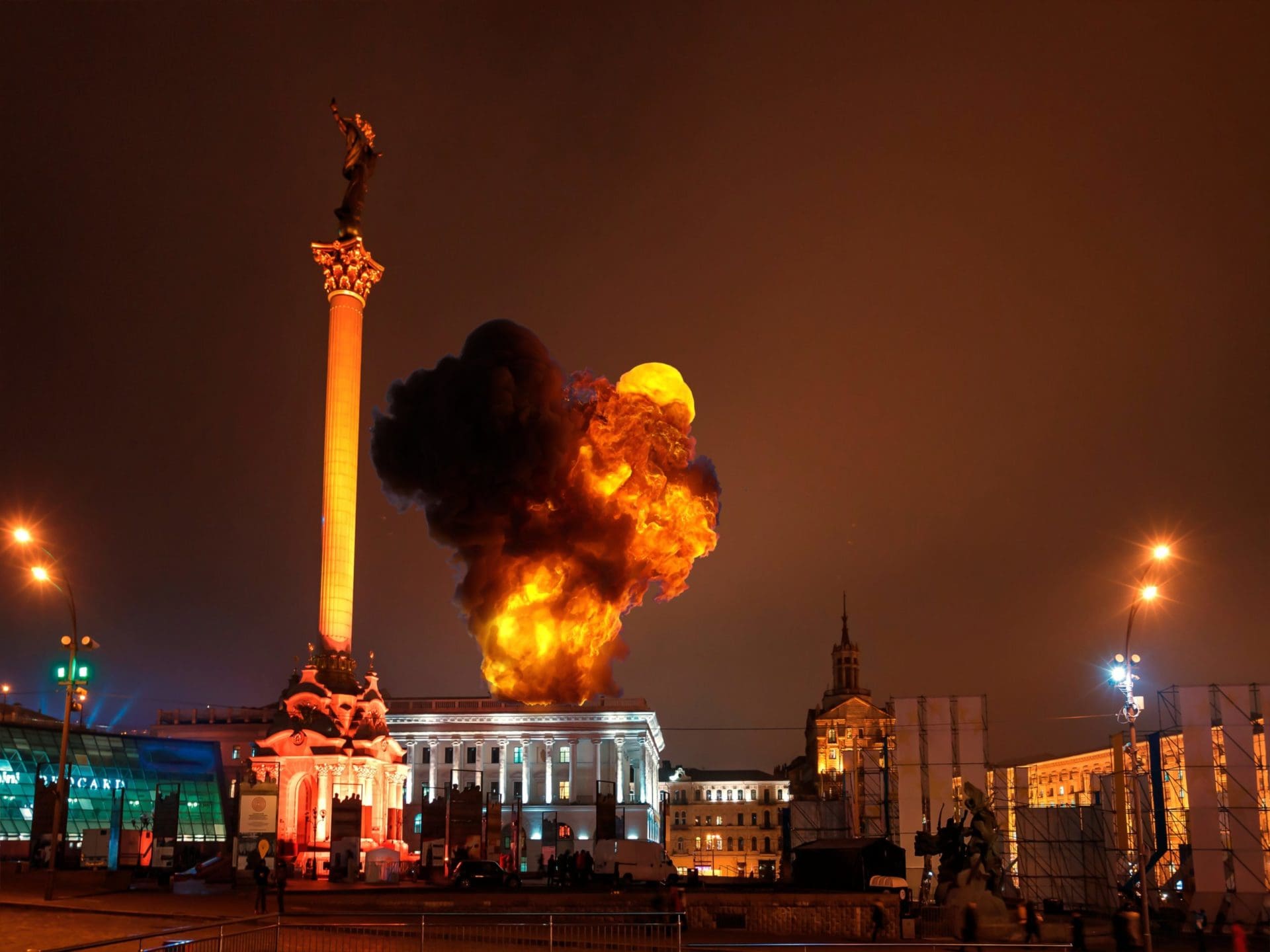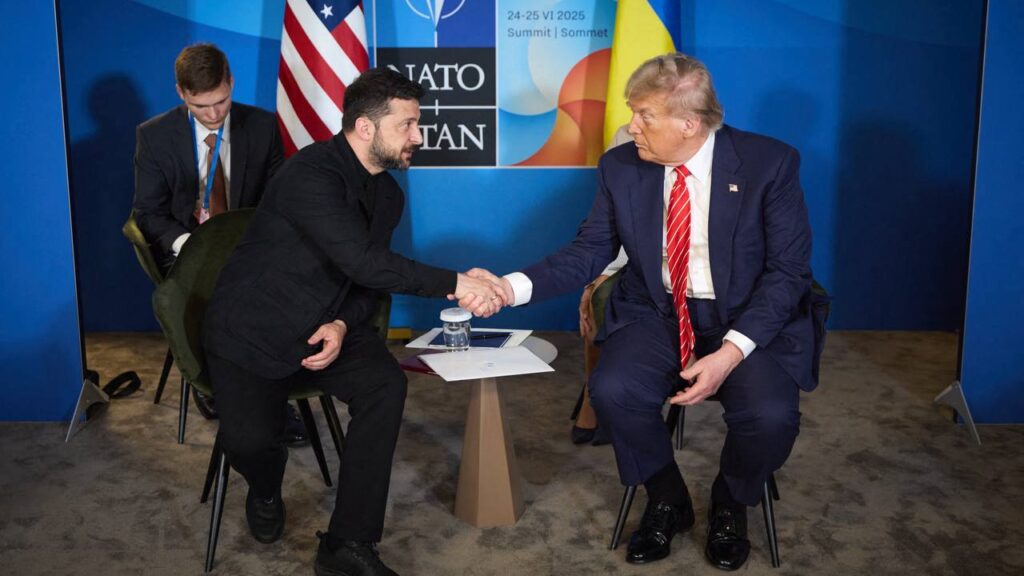No man of sound morals would approve of war. There is no ideology or money that could bring the victims of war back to life. You have but one life, death is irrevocable.
Human life is sacred because it is finite, unique and unrepeatable, thus it shall be protected at all costs. At least that is what we thought after the second world war, this was the guiding principle of European reconstruction. For the past few decades, we have been living in and living by these ideas.
Hence, armed conflict or war of any kind is morally unjustifiable. Nonetheless, it has existed and still exists, and it will probably continue to exist. People were killed when NATO bombed Serbia. People were killed in Iraq, Syria and Afghanistan. People are being killed in Ukraine. If the war escalates, it will cost human lives in Russia and in other parts of Europe, too.
The worst-case scenario is nuclear strikes by nuclear world powers, with consequences beyond our imagination. Now is the time to stop. To take two steps back. To understand what this war is about. To decide on what we want.
We cannot really tell what this exactly means for Putin. We may read a number of explanations in the international press, but in reality, only Putin himself knows. He might have an explanation – but no excuse.
This war is about the independence and sovereignty of a country, as well as the right to self-defence and the right to one’s own life
From our point of view, within the paradigm of European values, this war is about the independence and sovereignty of a country, as well as the right to self-defence and the right to one’s own life, which, from a Hungarian perspective, can only be approved. Europe is right in considering it a must to protect these values. We have been arguing in favour of them for years. The question that needs to be answered, however, is what does the West want? And in that regard, we can start worrying. Because everything points to the fact that Western leaders do not want peace, but to defeat Putin. And these are two different things. Various consequences may arise from this, but for now, let me just tell you about the consequences on culture.
I was born as a Hungarian in 1976 – in Romania. I spent my childhood in a dictatorship. Besides the huge amount of propaganda literature in the Romanian communist dictatorship, somehow Tolstoy and Dostoyevsky were also squeezed into the curriculum. As the internet did not exist at the time and there was nothing on the telly either–watching Ceausescu visiting factories did not seem that interesting–so we, ethnic Hungarian kids, started reading. At school we were taught a false history in the language of the state, but at home we could read in our mother tongue. We even read during power outages while we were freezing, because the heating faltered and we had hot water only twice a week. There was no war, but there was a dictatorship, with bread rationing, endless queues, hardship, tough silences, and so on.
We survived. I am convinced that the reason for that was our mother tongue; it kept us alive. To put it very simply: we survived because we could read what we were allowed to of the Hungarian, Romanian and world literature, and the lucky ones could even read what was not allowed. Our bookshelves at home defeated the ideology that was imposed on us.
So I read Dostoyevsky sooner than I read Thomas Mann, who was adored as ‘a European among white people’ by one of the greatest poets of the 20th century, Attila József. Later, in the brave new world of the second half of the 90s, I had to organise a proper hunt for the masterpiece of Venedikt Yerofeyev titled Moscow to the End of the Line. It was worth it.
For me – just like for half of the world – “the” movie was Stalker by Tarkovsky. And I am not sure anyone can be considered educated in Western culture (!) who has not heard of Tchaikovsky. Whether there is theatre without Chekhov.
All of these observations are clichés, but that is exactly the thing: Russian culture is part of European, and in a wider sense, of Western culture. We cannot be self-identical without Russian creators, performers, scientists and Russian intellectual grandeur.
Thus, whenever Russian pieces of art, creators, performers, intellectual excellences, or, horribile dictu, athletes are banned and cancelled on account of the Russian-Ukrainian war, the bright West simultaneously castrates itself. We should know better and take a look at our own cultural history: numerous masterpieces of Western culture were born in various battlefields and the creators did not always go there as Red Cross staff. Should we then erase all poems, novels, plays, compositions etc. that were created amidst the rumbling of cannons?
Perhaps the blanket application of the principle of collective guilt should not be so heartily applauded – it is a boomerang that usually strikes back
Furthermore, perhaps the blanket application of the principle of collective guilt should not be so heartily applauded – it is a boomerang that usually strikes back. Let us not forget the 20th century, it was not so long ago: both the Nazis and the Communists were happy to use it. If we are not careful, we might become both at the same time. Let me cite Attila József again, who warned about this already back in 1936: ‘Maybe mutter a new fable, / that of fascist communism – / for the world needs order, / and order is for / children to not be in vain / and for all that is good to be forbidden.’ Let us not give 20th century answers in the 21sth century, especially not those that our collective historical experience has proven unacceptable. Let us remember that we have suffered under both Nazi and Communist dictatorships here in Central Europe, and none of them were good.
As a university student in Cluj-Napoca –after the fall of Ceausescu– I could never equate Hungarian-hating mayor Gheorghe Funar with excellent Romanian contemporary writer Mircea Cărtărescu. Similarly, whatever Putin does at the moment cannot be relevant in relation to any Russian artist or performer. (It is also true the other way around: sadly, Amanda Gorman has not become a better poetess as a result of her recitation at Joe Biden’s inauguration.)
So, let us not throw the baby out with the bathwater. Let’s listen to and watch the Russians. As long as we can.
Attila József wrote something along those lines in his poem greeting Thomas Mann:
‘We’ve laid poor Kosztolányi in the mire, / and on mankind, as cancer did on him, / horrible monster-states gnaw limb by limb, / and we, aghast, ask what’s the next disease, / whence fall new wolfish ideologies, / what newer poison boils within our blood – / how long, and where, you can still read aloud?… / So. When you speak, we must not lose our flame, / we men should still be men in more than name, / and women still be women – lovely, free – / because true humans daily cease to be…’[1]
Show solidarity towards the Ukrainians, but do not disavow the Russians. In fact, stand up for them. They are both our people. Europeans.
Say no to the war – and say yes to culture!
[1] Translated by Zsuzsanna Ozsváth and Frederick Turner.








